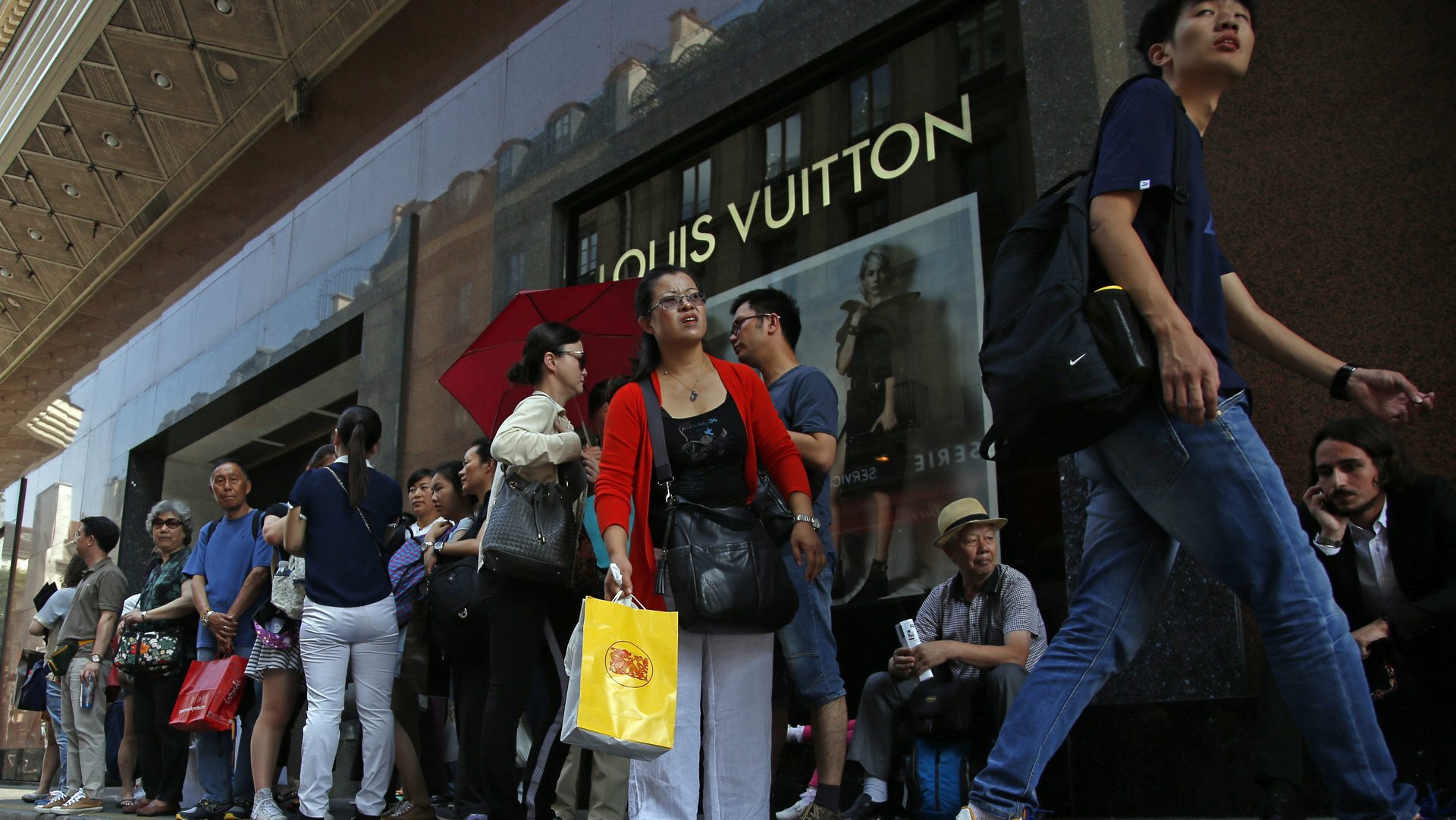China gears up for “revenge travel” during its Golden Week holiday
China’s cities are in full gear to cash in this week on a tourism opportunity shaped in part by global travel restrictions from the pandemic.


China’s cities are in full gear to cash in this week on a tourism opportunity shaped in part by global travel restrictions from the pandemic.
Around 550 million citizens are expected to hit the road from Thursday (Oct. 1), according to official estimates, as the country begins celebrating Golden Week, the eight-day break that spans the National Day holiday tomorrow and the Mid-Autumn Festival. The number may have shrunk compared with the nearly 800 million tourists who traveled within China last year during the holiday, a rare long official break in a country that has few public holidays. But it is still a stunning figure given global travel is not expected to rebound to pre-pandemic levels until 2024, as most parts of the world continue to play lockdown “whack-a-mole” to fight spikes of the coronavirus.
As of Sept. 14, bookings for domestic flights during the National Day holiday surpassed the number last year, while booking prices for hotels have also increased by 20% for the period , according to Qunar.com, one of the largest online booking websites in China. The number of flight trips in China is expected to reach 15 million, a 10% increase from last year, said Qunar. Hotel bookings for Golden Week surged by over 50% from a year ago, according to Alibaba-backed booking platform Fliggy.
The recovery of the tourism sector is the latest sign that life in China is almost back to normal eight months after the virus led authorities to enforce draconian quarantines of entire cities. New daily coronavirus infections have dropped to the double-digits and some citizens in Wuhan, where the virus was first discovered, told Quartz they stopped wearing masks recently as they think the situation is fully under control. In the city of Hangzhou, subways announced on Sunday that passengers no longer need to present their health code, a colored digital scheme used to indicate one’s health status, at stations.
“China’s tourism market is expected to see a wave of growth led by people’s desire to ‘revenge travel,’ ” said the state-owned Workers’ Daily. The term, which has been used widely in Chinese media recently, reflects the government’s hope that people will travel or consume more than they usually do during the weeklong holiday because of pent-up demand from being cooped up.
Temperature checks, crowd controls, and social distancing measures will remain in most sightseeing spots, but they have been allowed to use up to 75% of their usual capacity for visitors, according to China’s tourism ministry.
But while Chinese cities are ready to profit from this much needed travel spree, the traditional top outbound destinations for Chinese tourists, including Thailand, Japan, and Vietnam, will lose out big time during this Golden Week. The highest-spending nationals when traveling abroad, Chinese tourists spent $128 billion in the first half of 2019 alone, according to China’s State Administration of Foreign Exchange. Asian destinations are the most favored by Chinese visitors, followed by those in the Americas and Europe.
The seemingly positive tourism rebound in China is shadowed, however, by the country’s widening wealth gap as a result of the pandemic.
Due to a lack of financial aid such as cash incentives for citizens and subsidies for employers to retain workers, China’s poorest populations are struggling more than their richer peers. The poorest families in China, which earned less than 50,000 yuan ($7,339) in the first three months of the year, are among the groups that saw the biggest reduction in family assets from April to June, according to the China Household Wealth Index conducted by the Southwestern University of Economics and Finance and fintech giant Ant Group.
Some Chinese consumers are also shunning the idea of “revenge consumption,” saying all they need to do now is save as much as they can because of mounting uncertainty caused by the virus.